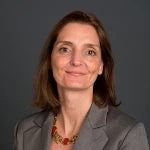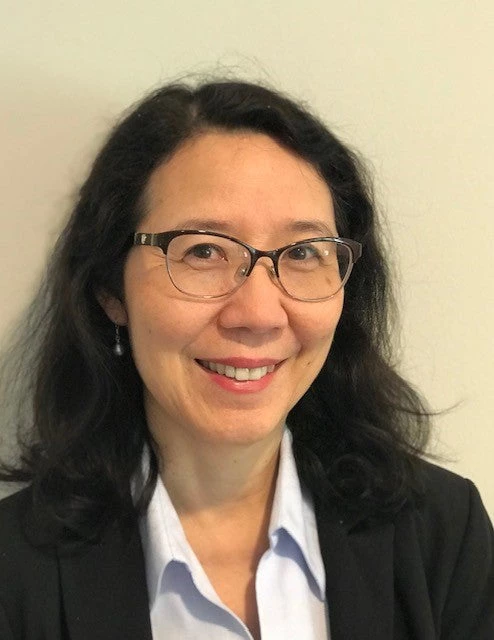 Photo credit @WorldBank
Photo credit @WorldBank
Sumi Dhar, a 34-year-old mother of two living in Bangladesh’s coastal town of Cox’s Bazar, epitomizes the new environmental heroes tackling plastics pollution across South Asia. Cox’s Bazar boasts the longest natural beach in the world and is facing a severe pollution crisis.
Sumi once ran a plastics scrap business, but things took a tragic turn when her business partner quit during the COVID-19 pandemic, taking all the money, and plunging the family into deep financial crisis.
Not one to give up, Sumi dove back into waste recycling, a male-dominated sector with deep-rooted societal stigmas. Sumi steadily grew her business to an average collection of 200 kilograms of waste a day. She received help from the non-profit organization, BRAC, which was awarded a grant from the Plastic Free Rivers and Seas for South Asia (PLEASE) project. PLEASE, implemented by the South Asia Cooperative Environment Programme (SACEP) and funded by the World Bank, works to curb marine plastic pollution in South Asia and ramp up eco-innovation to reinvent plastic use and production. Ensuring participation of women in the circular economy is central to this effort. Today, Sumi has four employees and earns $128 a month.
A 2023 World Bank report, Building a Future for Women in South Asia's Plastics Waste Management, shows that women like Sumi in the informal waste management sector are among South Asia’s most vulnerable workers. They struggle to compete with men and fare worse when faced with economic disruption. The report advocates a gender-inclusive approach to waste management, which includes understanding the context that shapes the experiences of men and women in the sector, and mapping and addressing the barriers to equality to maximize opportunities for all.
South Asian women like Sumi are not only defying social norms but are leaders in their communities. In the process, they are championing the fight against plastics pollution.
This is welcome in places like Cox’s Bazar, which is poised to contribute $10.24 billion or 2.1 percent in tourism revenues to Bangladesh’s total GDP by 2028. Yet, the area generates approximately 124 tons of waste daily—10 percent of which is plastic waste and makes its way into open dumps and uncontrolled landfills, and eventually into the waters of the Bay of Bengal, threatening the marine ecosystem, food safety, and people’s health.
The situation in Cox’s Bazar reflects a pervasive plastics pollution problem across the region. It has reached a tipping point: South Asia is one of the largest contributors of plastic waste globally, with 8 percent of the region’s solid waste composed of plastic. At current rates, the amount of waste generated across South Asia is expected to increase from 265 million tons per year in 2020 to 560 million tons by 2050. South Asian nations recognize the problem, and fighting plastics pollution with a cohesive approach was the primary reason behind the PLEASE project.
A Win-Win for Women’s Empowerment and the Environment
In the idyllic archipelago of Maldives, the problem of plastics pollution is just as pressing—and women are part of sustainable solutions to establish a circular economy.
Citizens dispose of waste often near the seashore, and this poorly managed plastic waste is threatening the Maldives’ marine ecosystem and tourism-driven economy. Notably, the World Bank funded Maldives Clean Environment Project (MCEP) supports the construction of waste management centers that process waste for further transport, processing, and recycling.
Converting Waste to Reusable Handbags
With a gender inclusive approach to managing plastics waste, PLEASE awarded a grant to the women-led Maldives Authentic Craft Cooperative Society (MACCS) to train women to create reusable bags from second-hand clothes and left-over fabric in Kulhuduffushi, Maldives fourth largest island. Women make up almost half of Kulhudhuffushi’s population, and the initiative enables them to explore new livelihoods. Like many Small-Island Development States (SIDS), the increase in tourism, population, and imported goods has resulted in more waste in the Maldives. Recycling clothes into cloth bags reduces reliance on imports and also means less cloth waste in beaches and oceans. Cloth bags are a great alternative to single-use plastics and aligns with the Single Use Plastic Phase Out Plan of the Government of Maldives, which was developed with World Bank support.
 Workshop on sustainable menstrual products conducted by Maldives Authentic Crafts Cooperative Society (MACCS) in Kulhuduffushi, Maldives. Photo: MACCS
Workshop on sustainable menstrual products conducted by Maldives Authentic Crafts Cooperative Society (MACCS) in Kulhuduffushi, Maldives. Photo: MACCS
Redefining the Discourse around Sustainable Menstrual Products
Microplastics pollution is the highest in the world in the Maldives. Single-use sanitary pads contain nearly 90 percent plastics which would take 500-800 years to decompose. A large amount of waste from these menstrual products finds its way into the ocean. Supported by PLEASE, MACCS held the first training for staff, nurses, and clinical assistants this past May on sustainable menstrual products at the Kulhudhuffushi Reproductive Health Centre. After the training, a nurse shared that now that she had the proper information, she was going to use a menstrual cup. In addition to menstrual cups, the project also raised awareness of cloth pads.
This new awareness among women in Kulhudhuffushi is a win in a society where conversations on menstrual health remain hidden. Such trainings empower women to make choices that have a lasting effect on the environment.
More Power to Women, Less Waste for the Environment
South Asia has the lowest female labor force participation in the world: only 1 in 4 women are in the workforce compared to 3 out of 4 men and informality is high. Creating sustainable work for women in the informal economy must remain at the heart of waste management, plastic pollution, and public health. The story of Sumi as well as the women of Kulhudhuffushi shows that the future of plastics waste management can create meaningful work opportunities, be gender inclusive, and both empower women and champion the environment.



Join the Conversation